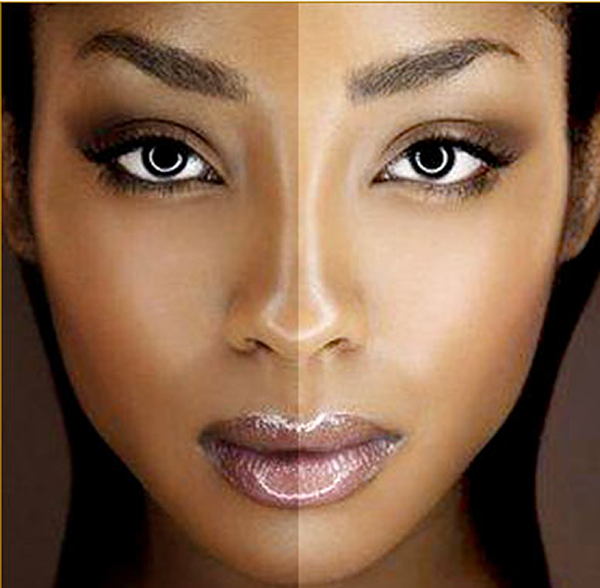
If You Are Crazy About Skin Lightening Creams, You Should Read These 5 Facts
- Oyinlola
- February 17, 2021
- Beauty
- how to use skin lightening creams, skin lightening all you need to know, skin lightening creams, skin lightening information, Things to know before using skin lightening creams
- 0 Comments

Thought of changing your skin colour to a more lighter shade? Do you want to seem more appealing with a lighter look? Are you going for skin lightening methods to look fairer and shed your darker skin?
There is a craving for skin lightening to shed dark skins for a much fairer one to look more beautiful or appealing. That is why some people have opted for bleaching creams and skin lightening creams.
Skin lightening is much milder than bleaching because it tones your skin and brings out your ‘supposed’ original colour. Even some celebrities have been known to use it.
Skin Lightening is the practice of using substances, mixtures, or physical treatments to lighten skin color. Skin whitening treatments work by reducing the content of melanin on the skin. Melanin is the pigment that gives humans their hair, skin, and eye colour.
There are chemicals mixed to create a lightening cream, some of which are dangerous to the skin and some are not. But it is important to note that skin lightening has its own risk that you should avoid as it has its own uses.
Read: Looking For That Strong White Teeth? Then Try These 5 Home Remedies
These are 5 facts that you should note before using that skin lightening cream.
1. There is actually no bleach involved in skin lightening.
Skin bleaching creams work by reducing a pigment called melanin. By applying the medication to hyper-pigmented areas, parts of the body or face that are visibly darker than others, melanin production is disrupted allowing the skin to lighten and become more uniform. Sometimes, skin lightening products can include exfoliants that induce mild peeling. Since skin tends to regenerate quickly and easily, the peeling helps to clear away dead cells and resurface fresher and lighter layers beneath. There are some creams that add bleaching chemicals to them to give a faster result. You should beware of such creams.
2. But skin lightening can have harmful side effects
Skin Lightening creams contain ingredients that may have carcinogenic properties that can be harmful. In other words, they may increase the risks of cancer. There are chemicals that if allergic to might cause dryness, redness and peeling of the outer layer of the skin. This means that it is not good for your skin.
3. There are huge consequences to abusing skin-lightening creams.
We have all likely seen bleaching jobs gone wrong and what overly bleached skin can look like: unnaturally white or red with green lines. When skin lightening creams with high hydroquinone are used for a period of more than three months, the whole skin lightening business can have some pretty negative, even paradoxical results. Though there is a possibility that this skin reaction can develop with lower doses, the risks are increased when the dose is higher. Overuse of skin whiteners can also cause pigmentation to build up in your extremities (fingers, toes, ears etc), causing them to look darker and mismatched. Yet another negative reaction can develop known as the “bleach panda effect”, where the skin on the face becomes thinned around the eyes and have increased pigmentation.
4. Natural skin lightening options exist as well.
For those wary of harmful chemicals, explore natural remedies to lighten skin. There are many naturally occurring agents that can be found in nature that have lightening properties, like yogurt, orange, honey, and aloe vera gel. Also chemical-free and easy to find an alternative is Vitamin C. There is also some research to suggest that pomegranate extract and vitamin E oral supplements may also inhibit melanin production. So if you must lighten your cream, do it the natural way than use products that are dangerous to the body.
5. Skin lightening interrupts the production of melanin
Skin lightening creams often aim to interrupt the production of melanin or just improve the general health of the skin. Most skin lightening treatments target the skin’s ability to produce pigment, or melanin, which gives your skin, hair and eyes their colour. Everyone has about the same number of cells to make melanin but how much you actually produce is down to your genes. As blacks, we produce more. When exposed to the sun, the body produces more melanin to absorb harmful UV rays and protect skin cells. And having more natural melanin also means that we tend to develop fewer wrinkles.






